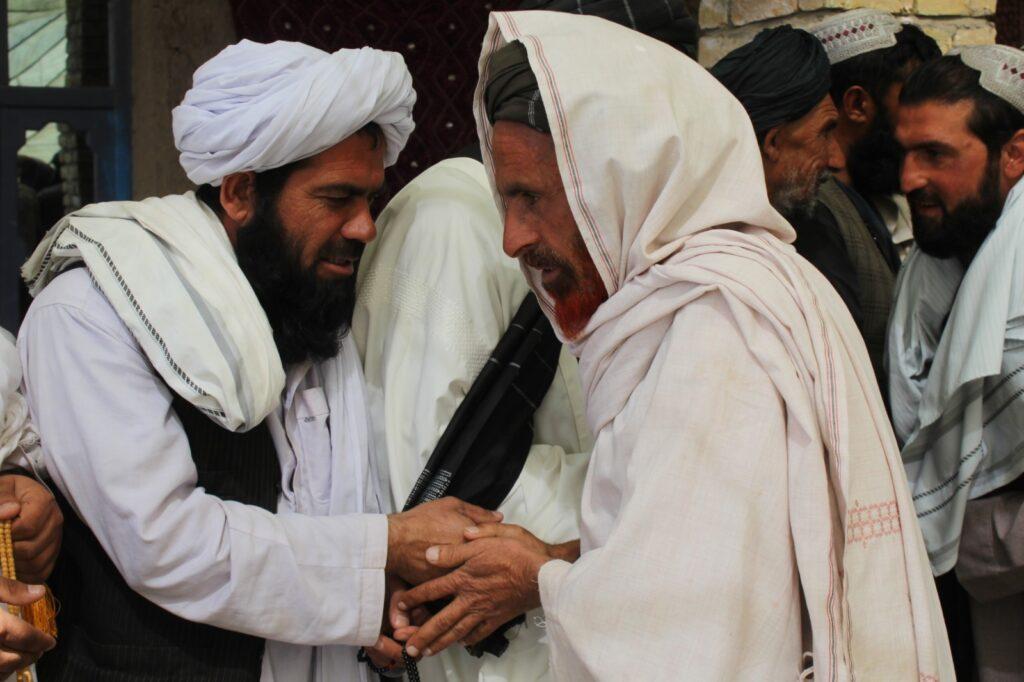KANDAHAR (Pajhwok): Mediation by tribal elders and religious scholars has ended a 12-year-old enmity between two families in the Dand district of southern Kandahar province.
First children of the two families clashed over a petty issue and then their elders jumped into the fight in Chapalani area 12 years ago during the month of Ramadan.
Dost Mohammad shot and injured Ahmad after their children clashed over something.
Ahmad survived and tribal elders and religious scholars at the time decided that Dost Mohammad should leave the village and should never return.
But after some months, Dost Mohammad returned to the village, which prompted Ahmad to kill Dost Mohammad and his maternal uncle Musa Khan.
The family of Ahmad then left the area (and all their belongings) for 12 years until they returned after reconciliation.
Abdul Hai, Ahmad’s brother, told Pajhwok Afghan News their enmity finally came to an end due to efforts of religious scholars, tribal elders and the district governor.
“We (both rival families) delegated authority to tribal elders, religious scholars to decide their fate and they discussed it multiple times among themselves before reaching a decision”.
He said he was happy that their enmity had ended because their upcoming generations would inherit it.
Muhibullah, 18, the guardian of Dost Mohammad and Musa Khan families, also said his family was satisfied with the mediation and decision of the religious scholars and tribal elders.
“What is important is that the enmity has ended now, in which our elders lost their lives”, Muhibullah said.
Maulavi Abdul Razeq, representing the religious scholars who mediated in the dispute, told Pajhwok that after lengthy discussions, it was decided that the family of Ahmad should pay 4.5 million Pakistani rupees as compensation to the families of Dost Mohammad and Musa Khan (the victims).
It was also decided that Ahmad’s family should be displaced to another village, Abdul Razeq said.
Such enmities stemmed from ignorance and existence of arms with people, Abdul Razeq said, stressing that such issues should be solve through dialogue.
Ismatullah Habibi, a representative of Chapalani village elders, said they considered all religious and cultural aspects of the issue in their decision.
“The plus point is this that neither ulema (religious scholars) nor tribal elders allowed any girls to be given in baad mirage to end the enmity.”
He said: “We made this decision in the light of Sharia Law and cultural and human rights laws, we would never allow our sisters and daughters to be given baad marriage.”
Hafiz Mohammad Seddiq, the administrative head of Dand district said they struggled for about a year to reconcile the two families and put an end to their enmity.
“We consulted religious scholars and tribal elders to make a fair decision where the enmity will never raise its head again”.
Seddiq said they retrieved guarantees from both sides that they would never create trouble for each other in future and many people were witness to this decision.
The residents of Kandahar province say such decisions that turn enmities into good relations and friendship worth admiration.
Seddiqullah Mukhlis, a teacher, told Pajhwok: “It is a joyful moment when friendship replaces enmity and decisions are made where enmities are buried and no girls are married in such issues”.
Religious scholars and tribal elders have recently intensified their efforts end enmities and pave the way for peace in the society.
So far, since the last one year, eight such enmities have been turned into friendships.
Majority of the people believe religious scholars and tribal elders can play an important role in resolving feuds.
aw/ma







GET IN TOUCH
NEWSLETTER
SUGGEST A STORY
PAJHWOK MOBILE APP